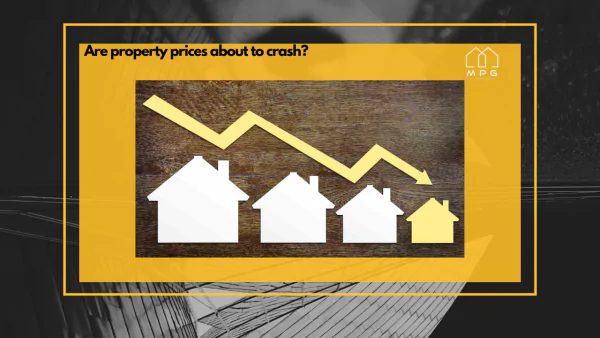

After what’s been an incredibly strong property market over the past 18 months, sentiment has been starting to weaken as the RBA appears set to soon start raising the cash rate.
I’ve had many clients come and ask me whether now is a good time to buy as they are concerned about falling house prices.
While some markets have certainly started to see growth soften, such as Sydney and Melbourne, there are a number of reasons why the property market won’t crash.
Over the past few years, APRA has been very proactive in making sure would-be borrowers can actually afford the property they are buying. We’ve seen an increase to the serviceability buffer, meaning that to qualify for a mortgage you already have to be able to afford it at three per cent above current rates. That means, that even those people who have taken out loans at record low rates, can still conceivably afford 300 bp of hikes within their current budgets.
One of the main impacts on the Australian economy during lockdowns was the complete drop off of immigration. Now the country is technically open again, we are likely to see more people returning and more upward pressure on house prices. The flip side of this has also been that the jobs market is just about as strong as we’ve seen in a long time. This is contributing to a very healthy economy and both micro and macroeconomic conditions. The lack of workers is putting upward pressure on wages which in turn helps borrowers.
We’ve also been in an environment where it’s been very difficult to spend all of our disposable income. With travel severely limited and with a large portion of the population being forced to stay at home for extended periods of time, many people have built up large cash buffers they can use in the event of higher interest rates.
The cost to construct new homes has also been rising sharply lead by both higher wages, supply chain issues impacting materials and a host of Government incentives that bought forward demand. With higher costs to build, established homes become a more attractive option and that ends up putting a floor under the price of homes.
An important figure to note is that around 30 per cent of homeowners don’t have a mortgage on their property. That means that the direct impact of interest rates rises doesn’t necessarily impact them. They are not forced to sell. There are also hundreds of thousands of other homeowners with small mortgages who will also not be impacted severely by rising interest rates. That means there is still only a limited supply that could come onto the market from those most impacted by higher rates. While the majority should not be in the same boat.
Wealth in Australia is very much linked to property prices and that means both the RBA and the Government have a vested interest in keeping the housing market afloat. No one wants to see the housing market crash and as we’ve seen in the past Governments will do whatever they can to keep asset prices as high as possible. If the housing market was to crash, the odds are the RBA would quickly slash rates and then start some form of QE.
The big difference between the stock market and the housing market is that housing is an essential need. We all need a place to live and that means there is real value attached to a property. The vast majority of homeowners are owner-occupiers and they want a roof over their heads above all else. They are not speculating and will therefore do whatever it takes to make sure the mortgage is paid.